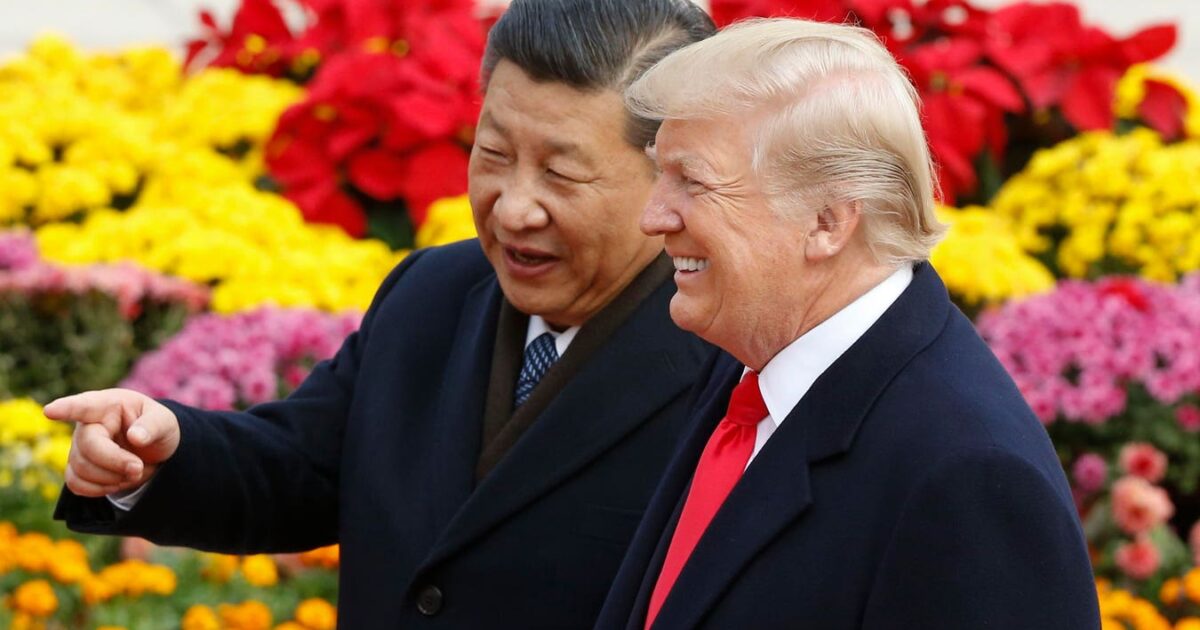Too Soft On China? Congress Has Concerns About Trump’s TikTok Deal

Some lawmakers worry Trump will settle for less than full U.S. control of TikTok’s algorithm.
Getty Images
On Monday, the Trump Administration announced that it had agreed with the Chinese government on a “framework” that would let TikTok’s Chinese parent company, ByteDance, sell its U.S. operations to a U.S. company.
The Trump team offered scant details about the substance of that framework, but Chinese officials said that it would involve the new U.S. TikTok entity licensing algorithms from ByteDance — an arrangement that suggests TikTok will still rely at least in part on its Chinese parent company for its secret sauce.
Though the details of Trump’s proposed deal are still uncertain, Congresspeople of both parties have reacted with alarm. Last year, when Congress passed the law requiring ByteDance to sell TikTok or see it banned, they placed explicit restrictions on how much TikTok would be able to rely on ByteDance after a sale. The law said any sale would have to “preclude[ ] the establishment or maintenance of any operational relationship” between the new TikTok and ByteDance, “including any cooperation with respect to operation of a content recommendation algorithm.”
Passed on April 24, 2024, the law has gone unenforced since Donald Trump took office in January and ordered his DOJ to ignore it (despite years earlier attempting to ban the app himself). But lawmakers have made clear that they expect the president to start enforcing it. Republican John Moolenaar, who chairs the House Select Committee on the CCP, said in a statement Wednesday that he was concerned about the licensing deal continuing TikTok’s reliance on ByteDance, in violation of the law.
This is another example of the sort of sad trombone that our constitutional system has slid into over the past, you know, decade.
Democrat Raja Krishnamoorthi, the ranking member on the committee and one of the authors of last year’s law, said “the law requires the new American TikTok to have no operational relationship with CCP-controlled ByteDance. President Trump has all the leverage he needs to strike a deal that saves TikTok and complies with the law – which means making sure TikTok’s data and algorithm are truly in American hands. He needs to use it. When further details of the deal are released, this is the standard President Trump will be judged by.”
U.S. Commerce Secretary Scott Bessent told reporters that Chinese negotiators were “interested in Chinese characteristics of the app, which they think are soft power,” but that U.S. negotiators “don’t care about Chinese characteristics. We care about national security.”
Alan Rozenshtein, a professor at the University of Minnesota Law School who has vocally supported the law and criticized Trump’s nonenforcement of it, told Forbes that a deal where TikTok just used ByteDance’s algorithms “is not a deal relative to the statute,” and that it “will not in fact solve any problem.”
After the Wall Street Journal reported that Trump’s plan involved engineers at the new TikTok entity “re-creating a set of content recommendation algorithms for the app, using technology licensed from … ByteDance,” Rozenshtein said there might be a way forward that actually complies with the law, depending on what exactly that means. He wrote on BlueSky: “Everything hinges on what this means … it’s possible that licensing technology is ok if the algorithm is fully recreated by a new U.S. TikTok.”
James Lewis, a senior advisor on technology and strategy at the Center for Strategic and International Studies, said he doesn’t expect the new TikTok to change its old algorithm much. “They’re not going to create an entirely new algorithm. They’ll just make it a little more, uh, U.S. friendly,” he said. Lewis flagged that there might be restrictions on how and how much the American company could change the Chinese algorithm: “What if there’s updates to the algorithm? Who does the updating? And how far can the U.S. Company go in tweaking the algorithm? We don’t know — usually, there’s a limit on that.”
The question of who will control TikTok’s recommendation algorithm has been a topic of negotiations for years. In 2020, when Trump first tried to ban TikTok, he gave ByteDance the same moratorium that Congress would give the company nearly four years later: sell TikTok to a non-Chinese company, or see it banned in the U.S. In response, ByteDance came close to selling TikTok, just as Trump had asked it to — but at the last moment, the Chinese government scuttled the deal, declaring the algorithm a sensitive technology subject to export restrictions.
It’s not clear what, if anything, will come of lawmakers’ objections to Trump’s proposed deal. Few if any people could likely sue to challenge it. Presidents have considerable leeway in how they choose to enforce laws, and while the Republican-led Congress could stand up to Trump for disregarding their intent on TikTok, holding legislation hostage until he abides their understanding of the law, that seems unlikely.
“Our constitutional system does not automatically redress every wrong,” said Rozenshtein. “Womp womp — this is another example of the sort of sad trombone that our constitutional system has slid into over the past, you know, decade.”
Rozenshtein still hopes that Trump will negotiate and finalize a “lawful” deal under the statute. But he’s not confident that this will be the one: “Given the Trump administration’s track record of saying random things that don’t end up coming true, I am remaining skeptical.”
Lewis at CSIS had a similarly cautious take. He’ll be watching for news from the Trump-Xi meeting tomorrow “to see whether it actually goes through.”
He said: “It’s not done until Xi and Trump give it a big kiss.”
